#no Hollywood dystopia
Text
May 31, 2023 3:51 PM EDT
ATLANTA (AP) — Police on Wednesday arrested three key Atlanta organizers who have been aiding protesters against the city's proposed police and fire training center, striking at the structure that supports the fight against what opponents derisively call "Cop City."
The Georgia Bureau of Investigation announced its agents and Atlanta police had arrested three officers of the group that runs the Atlanta Solidarity Fund, which has bailed out protesters and helped them find lawyers.
Charged with money laundering and charity fraud are Marlon Scott Kautz, 39, of Atlanta; Savannah D. Patterson, 30, of Savannah; and Adele MacLean, 42, of Atlanta.
State investigators said they found evidence linking all three to the alleged financial crimes after executing warrants Wednesday morning at a house owned by Kautz and MacLean that is emblazoned with anti-police graffiti in an otherwise gentrified neighborhood east of downtown Atlanta.
77 notes
·
View notes
Text
Hollywood says that they're waiting for "writers to lose all their money" and "lose their apartments" so they can finally start to be reasoned with and that it's a "necessary evil"
Oh, to hold a mirror up to their own sins which make them decrepit
#support the wga#wga#writers guild#writers guild strike#writers guild of america#strike#union#hollywood#can go burn#dystopia
34 notes
·
View notes
Text
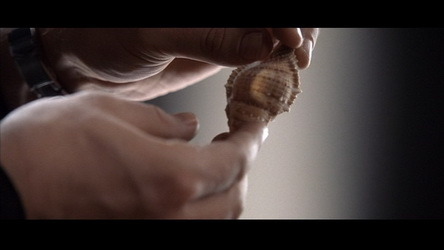
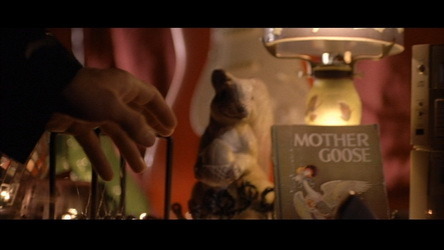

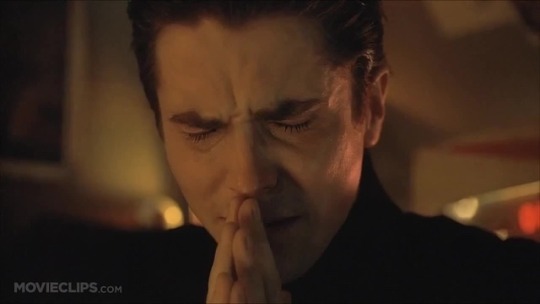
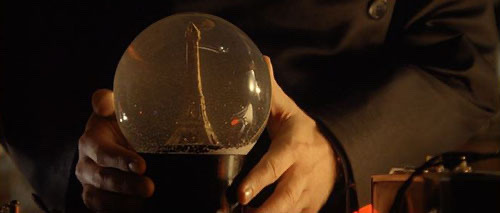

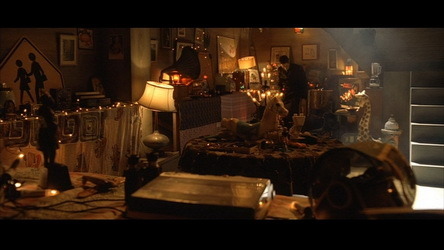

Christian Bale as John Preston in Equilibrium (2002) dir. Kurt Wimmer
#christian bale#actor#celeb#icon#movies#film#hollywood#christianbalefanatic#drama#dystopian movies#dystopia#science fiction#equilibrium#john preston#2000s#2000s movies#2000s actors#2000s icons#2000s hollywood#2000s films#2002#kurt wimmer
98 notes
·
View notes
Text
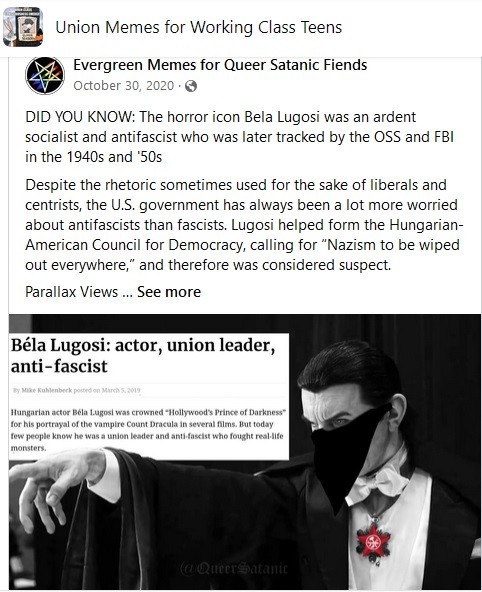
Bela Lugosi is not dead.
Long live Bela Lugosi!
#antifa #antifascism #hollywood #actor #BelaLugosi #hungary
#bela lugosi#161#1312#class war#antifa#antifascist#hollywood#actor#hungary#wage slavery#slavery#chattel slavery#venture capital#capitalism#anti capitalist#capitalist hell#washington capitals#capitalist dystopia#capitalist bullshit#ausgov#politas#auspol#tasgov#taspol#australia#fuck neoliberals#neoliberal capitalism#anthony albanese#albanese government#eat the rich
5 notes
·
View notes
Text
youtube
Cops killed a protester and kill 200 people a month.
7 notes
·
View notes
Text

#the matrix#neo#art#movies#films#hollywood#the wachowskis#keanu reeves#artificial reality#war with machines#simulated reality#dystopia#post apocalypse#free your mind#action movies#sci-fi movies
10 notes
·
View notes
Photo

(via GIPHY)
#giphy#love#art#marketing#painting#classic#hollywood#data#code#message#product#quiz#pop art#identity#marilyn#scan#dystopia#xdelacra#pixel portrait#quick response#crypto face
2 notes
·
View notes
Text
Exploring the Future of Humanity in Hollywood Films: Utopia or Dystopia?
Discover the captivating narratives in Hollywood movies and TV shows that delve into the future of humanity. From the TV show “Outer Limits” to the film “Suicide Squad (2021)” and the recent release “Space Jam (2022),” we explore whether these depictions offer a utopian or dystopian vision for humanity. Additionally, we analyze the unveiling of emerging technologies like the Meta-verse and Apple…
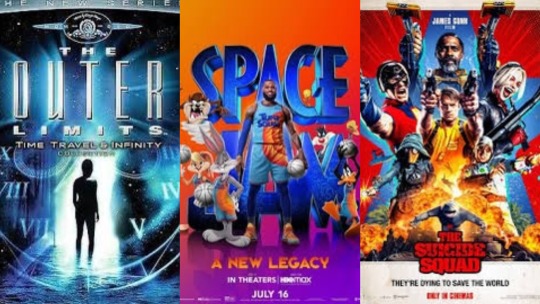
View On WordPress
#AI#Apple Vision Pro#cautionary tales#dystopia#emerging technology#future of humanity#Hollywood films#human-AI interaction#Meta-verse#technology in movies#utopia
0 notes
Text
Why the media CEOs will always learn the wrong lessons

Yesterday a friend and I talked about how the entire (AAA) game industrie looked at BG3 being as popular as it is and going: "Oh, we need to produce 100+ hour games, I guess! Those sell!" Which... obviously is not why it is popular. The game is not popular because it has 100+ hours of gameplay, but because it has engaging characters, that are well-acted and that work as good hooks for the players. Like, let's face it: The reason why I so far have sunken 160 hours into this game is, because I wanna spend time with these characters - and because I wanna give them their happy endings.
But the same has happened too, just a bit earlier this year, right? When Barbie broke the 1 billion and every Hollywood CEO went: "Oh, so the people want movies based on toy franchises! Got it!" To which the internet at large replied: "... How is that the lesson you learned from this?"
Well, let me explain to you, why this is the lesson they learn: It is because the CEOs and the boards of directors at large are not artists or even engaged with the medium they produce. They mostly are economists. And their dry little hearts do not understand stuff more complex than numbers and spread sheets.
That sounds evil, I know, but... It is sadly the truth. When they look at a successful movie/series/game/book/comic, they look at it as a product, not a piece of art or narrative. It is just a product that has very clear metrics.
To them Barbie is not a movie with interesting stylistic choices that stand out from the majority of high budget action blockbusters. It is a toy movie with mildly feminist themes.
Or Oppenheimer is not a movie to them with a strong visual language and good acting direction. No, it is a historical blockbuster.
And this is true for basically every form of media. I mean, books are actually a fairly good example. In my life I do remember the big book fads that happened. When Harry Potter was a success, there was at least a dozen other "magical school" book series being released. When Twilight was a big success there was suddenly an endless number of "teen girl falls in love with bad boy, who is [magical creature]" YA. When the Hunger Games was a success, there were hundreds of "YA dystopia" books. Meanwhile in adult reading, we had the big "next Game of Throne" fad.
Of course, the irony is, that within each of those fads there might have been one or two somewhat successful series - but never even one that came even close to whatever started the fad.
Or with movies, we have seen it, too. When Avengers broke the 1 billion (which up to this point only few movies did) the studios went: "Ooooooh, so we need shared universe film series" - and then all went to try and fail to create their own cinematic universe.
Because the people, who call the shots, are just immensely desinterested in the thing they are selling. They do not really care about the content. All they care about is having a supposedly easy avenue of selling it. Just as they do not care about the consumer. All they care about is that the consumer buys it. Why he buys it... Well, they do not care. They could not care less, in fact.
So, yeah, get ready for a 20 overproduced games with a bloated 100+ hours of empty gameplay, but without the engaging characters. And for like at least 15 more moves based on some toy franchise, that nobody actually cares about.
And then get ready for all the CEOs to do the surprised Pikachu face, when all of that ends up not financially successful.
Really, I read some interviews yesterday from some AAA-studio CEOs and their blatant shock and missing understanding on why BG3 works for so many people.
Because, yeah... capitalism does not appreciate art. Capitalism does not understand art. It only understands spread sheets.
#baldurs gate 3#oppenheimer#barbie#barbie movie#hollywood#game industry#media#indie media#media criticism#anti capitalism#late stage capitalism
4K notes
·
View notes
Text
"The unions of hollywood are on strike to prevent the corporations they work for from replacing all the artists with an algorithm that churns out procedurally-generated crap" sounds like an excellent setup for a cyberpunk dystopia novel. Unfortunately however, that is this week right now
2K notes
·
View notes
Text
For some reason I used to think men never get insecure about their looks/body then I discovered gymcel lifting bodybuilding forum culture and I realize that modern men just like us women ALSO have body dysmorphia. Because of steroids/HGH/tren/etc. Basically roids are men’s version plastic surgery/fillers. It’s what the media sells men and women to imply that we’re not good enough the way we are.
Nowadays if you’re a man who isn’t on steroids and a woman who hasn’t gotten work done on her face/boobs, it’s nearly impossible to have a visual/kinetic media career; be it in acting, modelling, athletics, dance, bodybuilding, etc. It’s a testament of the artifice and science fiction tier decline and dystopia of our age.
You have to be a literal cyborg nowadays and become More Human Than Human like a Philip K Dick character. And honestly I’m not ready to inject plastic into my face and to have my nose chopped off just to not feel ugly rip! Anyways I sympathize more with men’s body image issues now when I realize that every male Hollywood actor is on the strongest steroid cycle ever it’s sad that this is what we idolize
82 notes
·
View notes
Note
This week marked the 12th anniversary of The Hunger Games movie release.
What do you think about THG as a movie adapatation?
Do you think THG influence other movie (/book) in the genre? Yes/No? Why?
Is there any difference in your opinion about it between when you first saw the movie (/read the book) and now?
Thank you :)
@curiousthg
Ugh, it has been 12 years, hasn't it? Which means it's also 12 years since I first read the books. I may be old, but I do remember that I saw a Jennifer Lawrence interview for a different movie, but the interviewer asked her about The Hunger Games, and I'd bought an ebook version of them like maybe a year prior to that, not knowing they were being made into movies. So then I was like, well... better read the books now, because I always like reading books before the movie so I can be even more disappointed.
I think THG is an okay movie adaptation of a book. It's not great, but it's also not the worst. I do think that the books are still far better in terms of character development and maintaining the themes of the stories. And I get that Hollywood has to cut out something in order to fit into their allotted approximately two hour runtime, but that doesn't change the fact that there are plenty of movie adaptations that do a much better job, in my opinion, of maintaining the integrity of their source story. I mean, Clueless is technically a modern AU of Emma and I think that movie was a fantastic movie adaptation. And there are others that are different from their books but actually work equally as well as the source material, in my opinion (How to Train Your Dragon, and The Bad Guys both come to mind for this one).
I don't think my opinion of it has changed all that much. If anything, I think my opinion of the movies has gone down over the years. Part of that might be because I was in theaters as they were being released, so I was swept up in the excitement of seeing these books I loved so much being brought to life. I kept getting my hopes up that the adaptations would improve with each successive installment. And now... I'm much more likely to devote the time to rereading the books than I am to watching the movies again. Can't take the increasing disappointment, lol.
I think there is definite influence that THG had on the genre. You can see it in series like Divergent, and the literally hundreds of other YA dystopias that came out in the years following the "success" of THG. Dystopia turned into a cash cow for publishers after THG. I'm not yet convinced that any other writers managed to capture the kind of depth of character, story, or world building that Suzanne Collins did, tho I have to admit that there's only one other YA dystopia series that I've managed to finish. It honestly felt like watered down THG fanfiction and I just couldn't push the "I believe" button on the world building enough to really love it. I kept reading it, thinking I knew the direction it was going to take, but it didn't. The ending kind of...ruined it for me? I dunno. None of the others I've tried have caught my interest enough to get me past the first book.
Thanks for the ask @curiousthg!
<3 kdnfb
7 notes
·
View notes
Note
ok you're so right about hunger games though it's crazy how people here STILL treat it like it's this incredibly prescient leftist text lmao. it's like middling YA dystopia. it's also so bizarrely cruel to people with EDs, kind of racist at points in its depiction of the 'black people district', etc. it's not horrible but it's not fucking engels lol
it’s not fucking engels lol 😭😭😭 okay so my thing with thg is that by the time i read it, it was already a few years after i’d gone thru my “dystopian lit” kick when i was 8 (fahrenheit 451, brave new world, parable of the sower, 1984, etc etc) so it wasn’t my first introduction to the genre. i haven’t read it since it first came out, so take this with a grain of salt, but i did think that it was like. sufficient. im not a huge fan of first person narration in this kind of lit (obv when it’s employed well, like in lolita, or even to humorous effect in batuman’s the idiot, i’m certainly not opposed to it) and found it stylistically kind of tedious. the broad strokes of its thematic intent are all solid wrt it being a critique of how mass entertainment peddles cruel & exploitative spectacle while simultaneously obfuscating systemic exploitation under capitalism (although economically speaking the worldbuilding is kind of….nonsensical. but whatever, it’s an allegory, so it’s fine), and i do think that the points people have made since about how it preemptively ironized its own public reception are very apt. as a critique of american media, capitalism, and its intersection (ie, hollywood) it’s serviceable. as a protagonist, katniss is pretty cool i guess (and i remember especially loving rue). so when the second book came out i tried to pick it up, but i never finished it bc i found the constant rehashing of prior plot points tedious. i saw the second movie when it came out and thought that as a film, it was better than the first (way bigger budget, no doubt), but not enough to motivate me to actually finish the trilogy. although i’m also just someone who is rarely ever motivated to read an entire series, even if i really liked the first book, so it’s not even necessarily that the books went downhill (i can’t speak to that) just that after spending an evening reading the first book, i was just like “ok i think i’ve seen enough.” so yeah, it’s no parable of the sower, but it’s also leagues better than twilight of course. idk. the attempt to publicly rehabilitate its (or twilight’s) critical reception these past few years feels kind of misguided to me. noooo fellow twentysomethings don’t succumb to nostalgia you’re embarrassing meeeee 😭😭😭 they’re stranger thingsing us and y’all are falling for it.smh
10 notes
·
View notes
Text
Westworld at 50: Michael Crichton’s AI dystopia was ahead of its time
by Keith McDonald, Senior Lecturer Film Studies and Media at York St John University
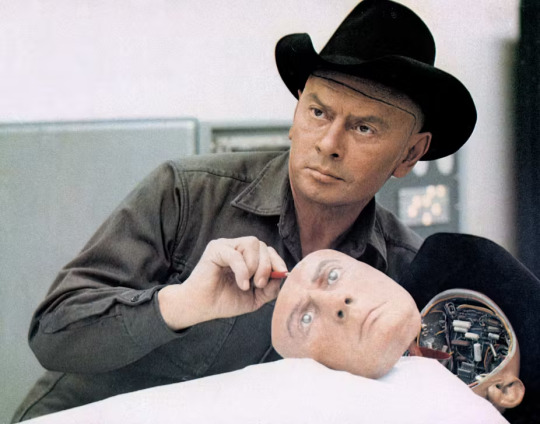
Westworld turned 50 on November 21. Director Michael Crichton’s cautionary tale showed that high-concept feature films could act as a vehicle for social commentary. Westworld blended cinematic genres, taking into account the audience’s existing knowledge of well-worn narrative conventions and playfully subverting them as the fantasy turns to nightmare.
The film centres on a theme park where visitors, in this case the protagonists Peter (Richard Benjamin) and John (James Brolin), can enter a simulated fantasy world – Pompeii, Medieval Europe, or the Old West. Once there, they can live out their wildest fantasies. They can even have sex with the synthetic playthings that populate the worlds.
This sinister idea went on to be explored further in later films such as The Stepford Wives (1975 & 2004), A.I. Artificial Intelligence (2001) and Ex Machina (2014).
youtube
Of course, it all goes terribly wrong when a computer virus overruns the park and the androids become unbound from the safety protocols that have been encoded into them. The resultant horror climaxes with Peter being stalked through the park by the menacing gunslinger (Yul Brynner).
The film isn’t perfect. Westworld was Michael Crichton’s feature directorial debut, and it shows – as does the tight shooting schedule and frugal budget imposed by MGM. The studio was notorious at the time for mishandling projects and their directors.
Compared to some of the other notable films released that year, such as William Friedkin’s masterful The Exorcist, Nicolas Roeg’s terrifying Don’t Look Now and Clint Eastwood’s assured High Plains Drifter, Westworld has a B-movie aesthetic.
This is, though, elevated by a towering performance from Brynner, and the high-concept approach that later came to dominate the Hollywood system. The film also provided fruitful inspiration for an ambitious HBO adaptation in 2016.
Genre blending and bending
Westworld successfully blended science fiction with other genres. In this sense, it was a pioneering film, which made the most of its limitations due to the hugely influential imagination of Crichton and a postmodern masterstroke of the casting and performance of Brynner.
Today’s cinema is saturated with meta-textual references – moments when a film makes a critical commentary on itself or another movie. This was typified by Michael Keaton’s recent reprisal of his role as Batman in The Flash. But when Westworld was released, such creative choices were novel and fresh.
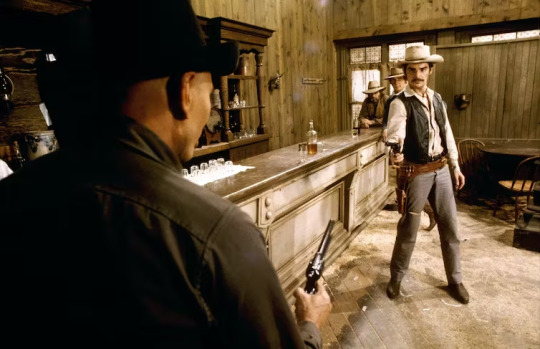
Bynner’s android gunslinger wears a costume almost identical to the one he donned for his role in The Magnificent Seven (1961). The choice adds dramatically to the thematic concerns of the film – the saturation of consumer culture and the postmodern bent towards repetition, simulation and cliche.
The simulated scenes in the theme park itself are built around cliched movie moments. The three settings which high-paying customers can enter represent film genres: The Medieval simulation, the “swords and sandals” recreation of the Roman Empire and the titular western.
When Westworld was released, each of these genres (the Medieval history, the Roman epic and the western) were already past their heyday, both in terms of popularity and reliability at the box office. Using them furthered the film’s comment on contemporary Hollywood – that it had run out of original ideas and was simply cashing in on nostalgia.
youtube
Westworld and AI
Though other films, like Stanley Kubrick’s 2001: A Space Odyssey (1968), were exploring the concept of nascent AI around this time, Westworld arguably did so in the most accessible style. And its legacy in doing so is clear in subsequent films, such as The Terminator (1984), The Matrix (1999) and recently in M3GAN (2023).
Crichton later revisited the notion of a theme park turning perilous due to the Promethean human instinct in his novel, Jurassic Park in 1990. Steven Spielberg’s adaptation remains one of the high points in American action-adventure cinema.
The fascinating scenarios Michael Crichton explored in his work successfully embodied the societal anxieties and technophobia of the 1970s. And in Westworld, he demonstrated a flair for capturing such fears in visual set pieces. This is no more evident than in the iconic, uncanny image of Yul Brynner’s deadly, sentient killer cowboy. Fifty years on, it remains one of the most memorable images in science fiction cinematic history.
#artificial intelligence#technology#movies#science fiction#science fiction and fantasy#futuristic#Westworld#Sci Fi Time Capsule#Youtube#featured
9 notes
·
View notes
Text
okay! here are some thg book one thoughts:
i’m still astounded at how well-paced, plotted, and written thg is. like i said before, i thought the writing was mid 14 years ago, but now i can see the brilliance in the book’s clear, direct language and use of modern idioms. appeals to kids, still compelling enough for an adult to pay attention. who knew!
it’s baby’s first dystopia and by that i mean, like. it’s a simplified version of events that can teach kids how power structures work in a stratified society + the role of modern media in reinforcing those structures. however, the events are actually not so simple; there are clear “good guys” and “bad guys” (as opposed to the real world, where those lines are rarely easily drawn) but every character is still grounded in reality. every character makes very, very human choices, none of them ever simple.
like, katniss is done sooooo dirty by our media’s perception of her character. she’s now the epitome of “strong female character” but so often people misunderstand that strength. she’s a traumatized, parentified teenager who’s learned how to survive impossible conditions, not a spunky girlboss. you understand.
i love katniss 😭 she would have been everything to me had i finished the series at 14 years old. now she’s my kid!!
i also love peeta. he’s smart. he’s hysterical. he’s currently stress baking to cope with his time in the arena. everyone needs a nap
there’s definitely a narrative about gender and heteronormativity going on here but i haven’t pondered the orb enough to articulate it yet.
the rue controversy was always insane but now it’s doubly insane. when katniss first describes her, she mentions her dark brown skin. like there’s no excuse to think she was white LMAO.
like everyone’s said, i wish they hadn’t cut out peeta’s amputated leg and katniss losing her hearing in her left ear during the arena. could be a production budget issue or an ironic Hollywood Glamorization moment, but omitting all notion of disability was still a pretty bad decision. same goes for omitting the avoxes until like, movie three.
10 notes
·
View notes
Photo
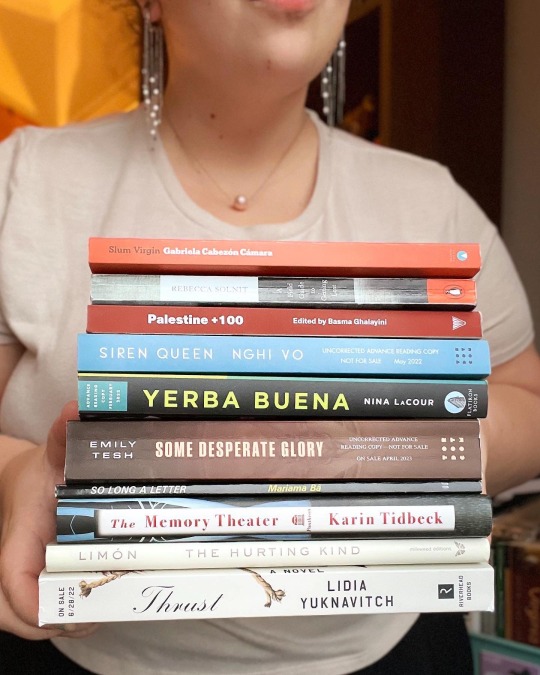

Introducing my Favorite Reads of 2022!
I chose just 22 out of the 215 I read.
Slum Virgin by Cabezón Cámara tr. Riddle - queer tragicomedy about a poor Buenos Aires neighborhood
A Field Guide to Getting Lost by Solnit - I carried this nonfiction about wanderlust all around the world
Palestine+100 ed. Ghalayini - picturing Palestine’s future through SFF
Siren Queen by Vo - silver age Hollywood with a fae twist
Yerba Buena by LaCour - a queer romance about trauma, grief, growing up
Some Desperate Glory by Tesh (Apr ’23) - a can’t-miss queer space opera
So Long a Letter by Bâ tr. Bodé-Thomas - just 99 pages & a vivid patriarchy story
The Memory Theater by Tidbeck - a fae-inspired literary fantasy
The Hurting Kind by Limón - the latest from my favorite poet
Thrust by Yuknavitch - a kinky, queer fantasy
The Grapes of Wrath by Steinbeck - beautiful and vividly anti-capitalist
The Undying by Boyer - gorgeous, poetic memoir about 'surviving' cancer
Lost in the Moment and Found by McGuire (Jan ’23) - my favorite Wayward Children novella yet
They Will Drown in their Mothers’ Tears by Anyuru tr. Vogel - can we avoid an Islamophobic dystopia
Illness as Metaphor and AIDS and its Metaphors by Sontag - she did the groundwork
A Little Devil in America by Abdurraqib - brilliant commentary on Black cultural performance
The Memory Librarian by Monáe & collaborators - just superb Afrofuturism
The Invisible Kingdom by O’Rourke - on the damaging narratives we tell around illness
Seeing Red by Meruane tr. McDowell (unpictured) - a harrowing tale of going blind
When Women Kill by Zerán tr. Hughes (unpictured) - how our treatment of female murderers reflects our misogyny
Fruits Basket Collector’s Edition Vol. 11 by Takaya tr. Drzka (unpictured) - A+ reread!
#seanan mcguire#emily tesh#book stack#book recommendations#book recs#book recommendation#john steinbeck#bookstagram
64 notes
·
View notes